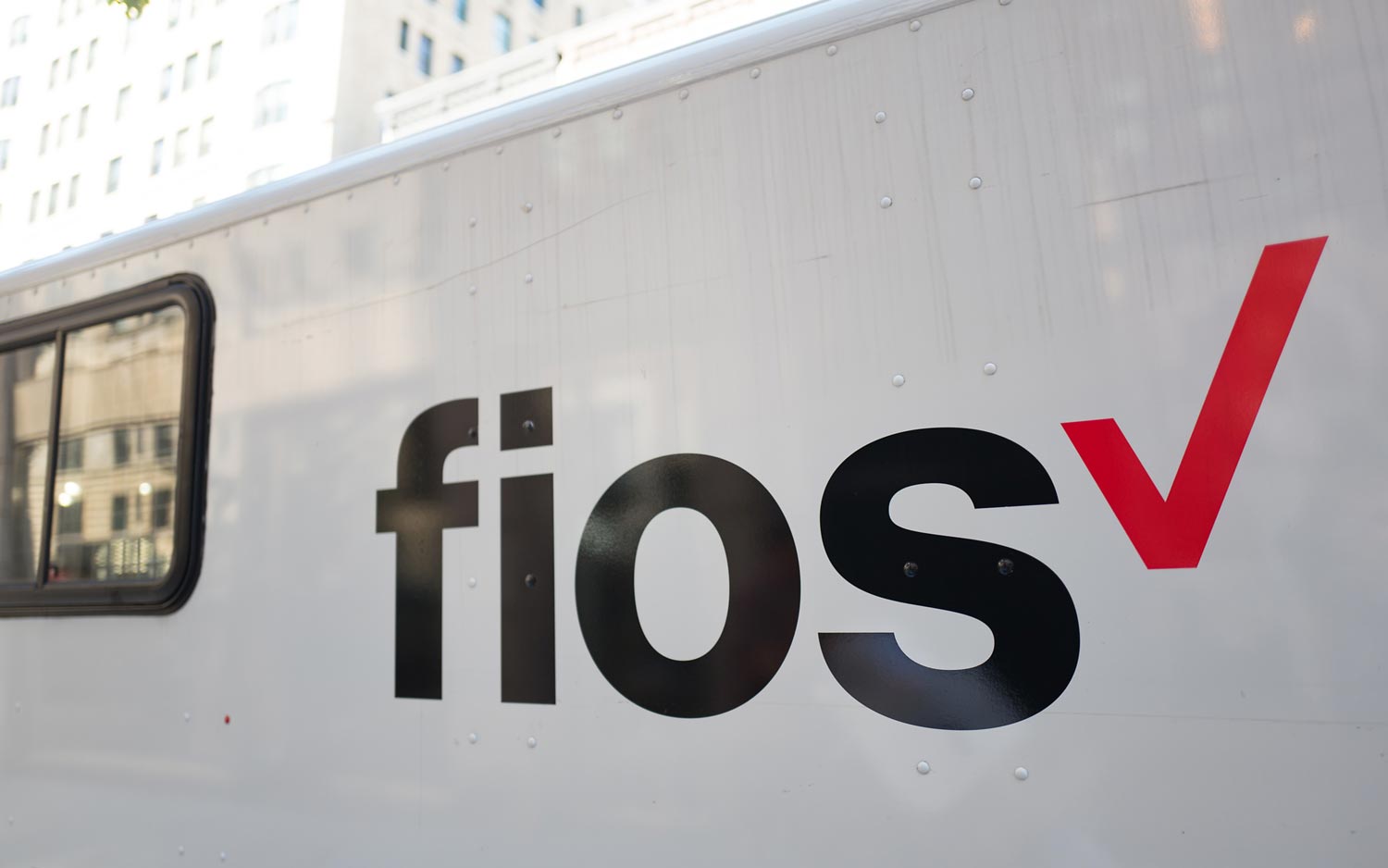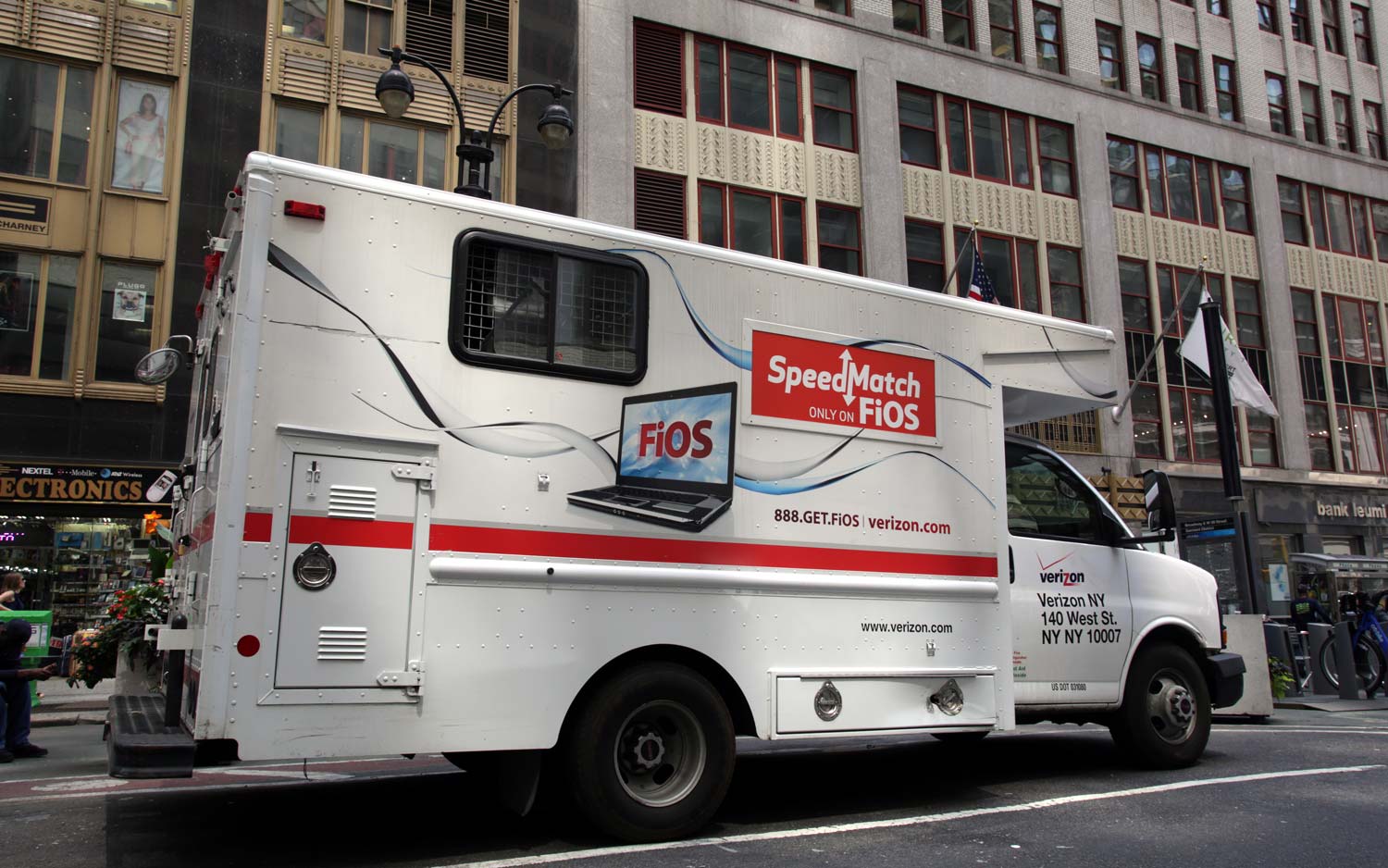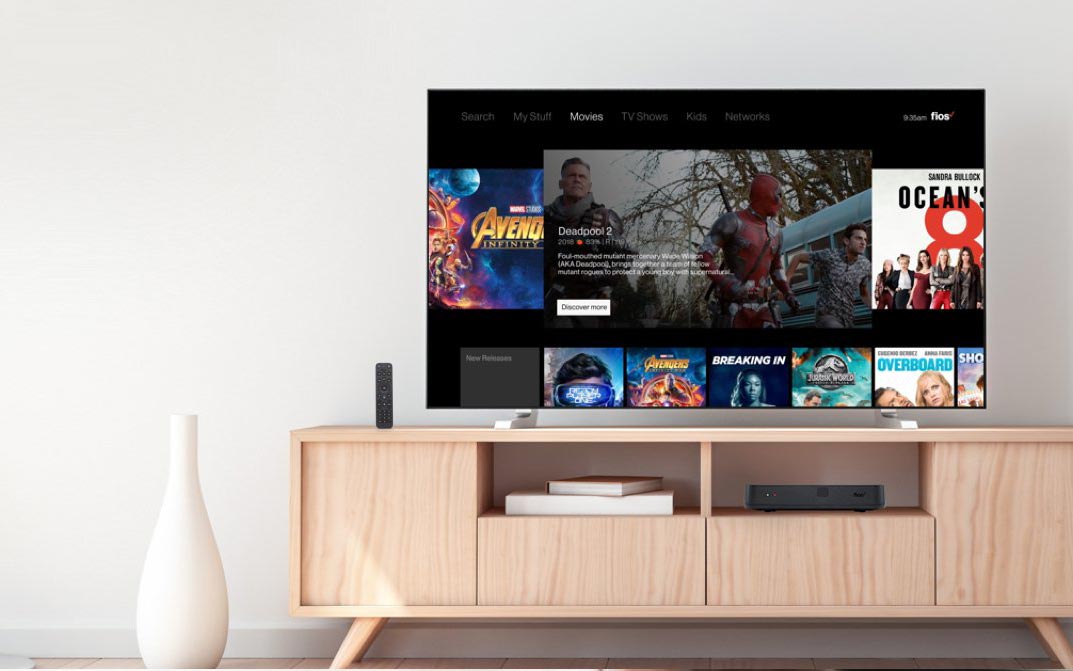I Tried to Sign Up for Verizon Fios. It Turned Into a Nightmare
Signing up for Verizon Fios service is not nearly as easy as the company makes it sound.
If you've ever moved into a new place, you know it can be tough. You've got to cram everything you own into a thousand little boxes, lug heavy furniture around, set up a home from scratch — in other words, it's a lot, and every inconvenience adds up. But at least it's easy to get your new internet service up and running. All you have to do is make a phone call, schedule a technician, and wait for him or her to run a few wires, right?

If my 11 days without internet is any indication, no, it's not that simple — at least if you choose Verizon Fios.
My simple request to get a basic internet plan turned into a weekslong odyssey of mediating cable companies and landlords (yes, multiple), all while trying to get my own work done and keep everyone in my apartment happy. I write this partially to vent my frustrations and partially as a warning.
The hook
It's hard to argue with the numbers. In NYC, Fios offers 100-Mbps speeds for $40 per month for one year, capping out at $55 per month every year thereafter. Compare that to RCN, which had been charging me $65 per month for 50 Mbps.
My former roommate alerted me to Verizon's $40 deal, and he said it couldn't have been easier. A technician showed up at my old roommate's new apartment, ran a cable, verified something on a laptop and was out again in less than an hour. With a recommendation like that, why would I want to hang on to my clunky, old RCN service?
The technician told me that setting up Fios in my apartment wasn't possible unless I had permission from my landlord to run a cable over my roof, secure that cable down the front of the building and then drill a hole through my front wall. I'd also need permission from the landlord next door to run cable through his yard and through a fence.
I visited Verizon Fios' website, which has a handy address-checker that can tell you in advance whether the service is available in your building. The website said it was. Being extremely cautious about tech, I called up Verizon customer support to verify. A representative looked up my new apartment and assured me that it would be "no problem" to set up service there. After all, the woman in the apartment right next to mine had Fios, so getting it installed couldn't be that much of a hassle.
Get instant access to breaking news, the hottest reviews, great deals and helpful tips.

I set up an appointment online and even received a customized "welcome to Verizon" video for my troubles. The technician arrived precisely when he said he would and told me that all he needed was a quick look at the backyard and the roof.
Then, he told me that setting up Fios in my apartment wasn't possible unless I had permission from my landlord to run a cable over my roof, secure that cable down the front of the building and then drill a hole through my front wall. But that was the easy part; I'd also need permission from the landlord next door to run cable through his yard and through a fence. I told the technician I was very confused, because this didn't sound like the "no problem" installation I'd been promised.
"Yeah, they don't tell you about this part, do they?" he replied, shrugging, and walked out.
Around that time, my mobile data ran out. You'd be amazed how much bandwidth you can use in a few days.
The line
I didn't really know what to do at this point, because the technician never specified exactly what kind of permission he required or how I should get it. So, I decided to hedge my bets by both emailing my landlord and calling Verizon customer service again.
(I also tweeted at the company and dealt with a rep who clearly did not read my actual complaint. That turned out to be a dead end.)
My landlord explained, as I thought, that other people in the building had Fios access without issue, so he wasn't sure why Verizon would have to run a whole new line — and through a neighboring yard, at that. He said he'd look into the issue further.
Meanwhile, I got ahold of a Verizon representative on the phone. She said that she couldn't help me but the New York Technician Dispatch Team could. That team, she explained, would put me in touch with a technician directly, who could explain exactly what permission he or she would require from the two landlords. The technician would even help me reschedule an appointment.
To reiterate: Verizon told me that the only way to solve my problem was to contact a department that literally does not exist.
Without further ado, I called the fabled Technician Dispatch Team. A helpful computerized voice informed me that my wait time would not exceed 4 minutes.
Twenty-five minutes later, a representative picked up and asked how she could help me.
"Hello," I said. "Is this the New York Technician Dispatch Team?"
"The what?" she replied.
After a few minutes, we got to the heart of the matter: There is no such thing as the New York Technician Dispatch Team, and the phone number I'd received went directly to the regular Verizon Fios customer service line.
To reiterate: Verizon told me that the only way to solve my problem was to contact a department that literally does not exist. (The Verizon Fios Twitter account was silent about that little snafu.)
MORE: Cord Cutting Guide - How to Ditch Cable TV and Stream Happily
Luckily, this representative seemed better-informed than the first and got in touch with a technician herself. The two of them informed me that I would need written permission from each landlord authorizing a Verizon Fios technician to run cable and drill holes. Those of you who live in NYC know that a request like this isn't easy to fulfill — but it is definitely possible, and at least I had a solid path laid out in front of me.
The sinker
In fact, things improved the next day, when I received a call from a woman who works for Verizon's corporate office. She demanded to know why I'd canceled my Verizon appointment and which internet service I'd decided to use instead.

When I finally got a chance to explain my trials and tribulations, the rep confirmed that two landlord letters would solve the problem once and for all. In fact, she'd do me one better: She, personally, would take my landlord's call and direct him through the rest of the process. If she wasn't there, she assured me, someone else would be able to answer our questions just as well as she could.
Feeling good about my prospects of having internet for the first time in a week, I wrote an email to my landlord asking him to please call the corporate rep and to let me know what she said.
For three days thereafter, he called the corporate rep's number twice a day, getting bounced around from one employee to the next, each of whom gave him a different answer, and none of whom had any idea how to proceed. He was unable to reach the woman who contacted me.
MORE: Verizon vs. RCN: Which Internet Provider is Better?
Finally, he sent me a message saying that most tenants in the building have RCN and seem perfectly happy with it. Would I be willing to join their ranks?
After huddling next to a LinkNYC hotspot, checking my email and downloading episodes of Babylon 5 on my smartphone, I realized that I'd be quite happy to do just that.
The resolution
Truth be told, I'm not thrilled about paying more money for a slower service through RCN. But I'm also not as broken up about it as you might think. I had RCN at my old place for seven years, and I can't think of a single significant issue that cropped up during that time. The service is steady, the representatives are polite, and the bill has no surprises on it. As cable companies go, RCN is downright pleasant.
To its credit, Verizon was willing to comment on my situation:
"We apologize for the experience you had, as in this specific case, it appears our protocol was not followed," a Verizon spokesman told Tom's Guide. "We're working to ensure this does not happen in the future." The representative also offered to help me complete my installation, but at this point, I think that would be more trouble than it's worth.
In the end, I won't get 100-Mbps internet for $40 per month. I won't get a fiber optic network, or blazing-fast upload speeds, or a complimentary $50 Visa gift card for signing up. But I will get steady, reliable internet from a company that's proven its worth before, and I think I can live with that.

Marshall Honorof was a senior editor for Tom's Guide, overseeing the site's coverage of gaming hardware and software. He comes from a science writing background, having studied paleomammalogy, biological anthropology, and the history of science and technology. After hours, you can find him practicing taekwondo or doing deep dives on classic sci-fi.
 Club Benefits
Club Benefits





